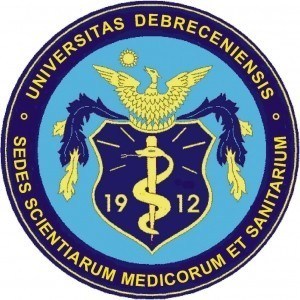Photos of university / #tcdglobal
The Aggression Studies Specialism at the University of Dublin offers a comprehensive and multidisciplinary approach to understanding the complex phenomena of aggression, violence, and conflict in various social, political, and personal contexts. This specialized programme is designed to equip students with advanced theoretical knowledge and practical skills necessary for analyzing the roots, manifestations, and consequences of aggressive behaviour across different settings. Building on a strong foundation in psychology, sociology, criminology, and international relations, students will explore topics such as aggression theories, conflict resolution, forensic assessment, and the impact of societal structures on behavioural patterns. The programme emphasizes critical thinking, empirical research methods, and ethical considerations in studying aggression, preparing graduates for careers in academia, policy development, law enforcement, mental health, or conflict mediation. Through a combination of lectures, seminars, case studies, and hands-on research projects, students will gain valuable insights into managing and mitigating aggression at individual, community, and national levels. The university's state-of-the-art facilities and distinguished faculty members ensure that learners benefit from high-quality education grounded in the latest academic research and real-world applications. By the end of the specialism, students will possess a nuanced understanding of the psychological and social dynamics of aggression, along with practical strategies for intervention and prevention. This programme is ideal for those passionate about making a positive impact on society by addressing one of its most challenging issues — aggression and violence — and seeking to develop effective solutions grounded in evidence-based practices.
The Aggression Studies Specialism at the University of Dublin offers a comprehensive exploration of the multifaceted nature of aggression, aiming to equip students with a deep understanding of its psychological, social, biological, and cultural dimensions. The programme is designed for students interested in addressing issues related to violence, conflict, and antisocial behaviour across various contexts, including individual, group, and societal levels. Throughout the course, students analyze theoretical frameworks and employ empirical research methods to investigate the root causes, manifestations, and consequences of aggressive behaviour.
The curriculum covers key topics such as the developmental origins of aggression, the neurobiological mechanisms involved, and the influence of environmental and social factors. Students examine case studies spanning criminal behaviour, workplace violence, youth aggression, and international conflicts. Ethical considerations and intervention strategies are integral parts of the programme, preparing students to participate effectively in conflict resolution, policy-making, and clinical practice. Practical skills are emphasized through workshops, seminars, and research projects, allowing students to develop competencies in data analysis, psychological assessment, and intervention planning.
In addition to core modules, students have opportunities to specialize further through elective courses in areas like forensic psychology, social policy, and trauma. The programme promotes interdisciplinary approaches, encouraging collaboration with faculties such as Psychology, Sociology, and Law. Students are also encouraged to undertake internships and fieldwork placements to gain real-world experience and engage with communities and organizations working in violence prevention and conflict management.
Graduates of the Aggression Studies Specialism will be well-equipped for careers in forensic institutions, law enforcement, social services, mental health settings, and academic research. They will possess a nuanced understanding of the dynamics of aggression and practical skills for intervention and prevention efforts. The programme aims to foster critical thinking, ethical responsibility, and a commitment to social justice, making a meaningful contribution to reducing violence and promoting peace in diverse communities.
The Aggression Studies Specialism at the University of Dublin requires students to complete a comprehensive curriculum designed to provide an in-depth understanding of the causes, effects, and management of aggressive behavior across various contexts. Students are expected to engage with core modules that cover psychological theories of aggression, sociological perspectives, and criminological approaches. These modules equip students with analytical skills necessary to examine the individual and societal factors contributing to aggressive acts, as well as intervention strategies to mitigate such behavior.
Prerequisite knowledge in psychology, sociology, or related fields is recommended, although entry is open to a diverse range of applicants with relevant academic backgrounds. The program combines theoretical coursework with practical components, including case studies, role-playing exercises, and research projects, allowing students to apply concepts in real-world scenarios. Each student must complete a series of assessments, such as essays, presentations, and examinations, to demonstrate their understanding and critical thinking skills.
A significant component of the program involves a research dissertation, wherein students independently investigate a specific aspect of aggression, employing quantitative or qualitative methodologies. To successfully complete the specialism, students must demonstrate proficiency in research design, data analysis, and scholarly writing. Additionally, the program encourages interprofessional learning, collaboration with organizations involved in conflict resolution, forensic analysis, and mental health services, thereby fostering practical experience and professional networking.
The program duration typically spans one academic year for full-time students, with part-time options available. Successful graduates will be equipped with advanced knowledge and skills applicable to careers in criminal justice, mental health services, social work, education, and research. Moreover, graduates will be prepared to pursue postgraduate studies or specialist certifications in related fields. Continuous engagement with current research and developments in aggression studies is emphasized throughout the program to ensure students remain abreast of best practices and emerging theories. Overall, the program’s requirements aim to develop academically competent, ethically aware, and practically skilled professionals capable of addressing aggression-related issues in diverse settings.
Financing for the Aggression Studies Specialism at the University of Dublin is primarily obtained through a combination of sources, including government funding, university scholarships, and external financial aid options. As a public university, the University of Dublin benefits from state support, which helps offset tuition costs and provides funding for research and program development. Prospective students are encouraged to explore the Irish government's student grant schemes, which may include means-tested grants and loan programs designed to make higher education more accessible. Additionally, the university offers a range of merit-based scholarships for both domestic and international students, rewarding academic achievement and leadership qualities. These scholarships can significantly reduce the overall cost of studying, making the program more affordable.
Furthermore, students are advised to consider external funding sources such as private scholarships, industry sponsorships, or international grant programs that support studies in social sciences or conflict resolution. Many students also finance their education through part-time employment or internships that align with their academic interests, providing both practical experience and income. The university's career services can assist students in identifying suitable opportunities that complement their academic pursuits.
In terms of tuition fees, the costs for the Aggression Studies Specialism vary depending on the student's nationality and residence status. EU students typically benefit from lower tuition rates subsidized by the Irish government, while non-EU students may pay higher fees. The university provides detailed fee schedules and guidance on payment plans, installment options, and financial aid applications.
Overall, students are encouraged to plan their finances carefully and utilize the available resources to support their educational journey. The university offers advisory services to help students navigate funding options and complete necessary applications for grants and loans. By combining various sources of financial support, students can effectively manage the costs associated with pursuing the Aggression Studies Specialism and focus on their academic and professional development in this specialized field.
The Aggression Studies Specialism at the University of Dublin offers a comprehensive exploration of the psychological, sociological, and biological underpinnings of aggressive behavior. This program is designed for students interested in understanding the multifaceted nature of aggression, including its causes, effects, and potential interventions. The curriculum integrates theoretical frameworks with practical applications, equipping students with a deep understanding of aggression in various contexts such as criminal behavior, workplace violence, and interpersonal conflicts. Students will engage in rigorous coursework covering topics like criminology, psychopathology, conflict resolution, and forensic psychology. Additionally, the program emphasizes research methodologies, enabling students to conduct their own studies on aggression-related topics. Throughout the course, students have opportunities for practical experiences through internships, seminars, and collaborative projects with law enforcement, mental health organizations, and community agencies. The degree prepares graduates for careers in mental health services, criminal justice, social work, and research. It also provides a solid foundation for those interested in pursuing postgraduate studies in psychology, law, or related fields. The interdisciplinary approach ensures students gain a holistic perspective on aggression, considering factors at the individual, group, and societal levels. The program is designed to foster critical thinking, ethical inquiry, and evidence-based practice, making graduates well-equipped to contribute to reducing violence and conflict in various settings. Overall, the Aggression Studies Specialism at the University of Dublin offers a unique and in-depth education for students dedicated to understanding and mitigating aggressive behavior across different sectors of society.










